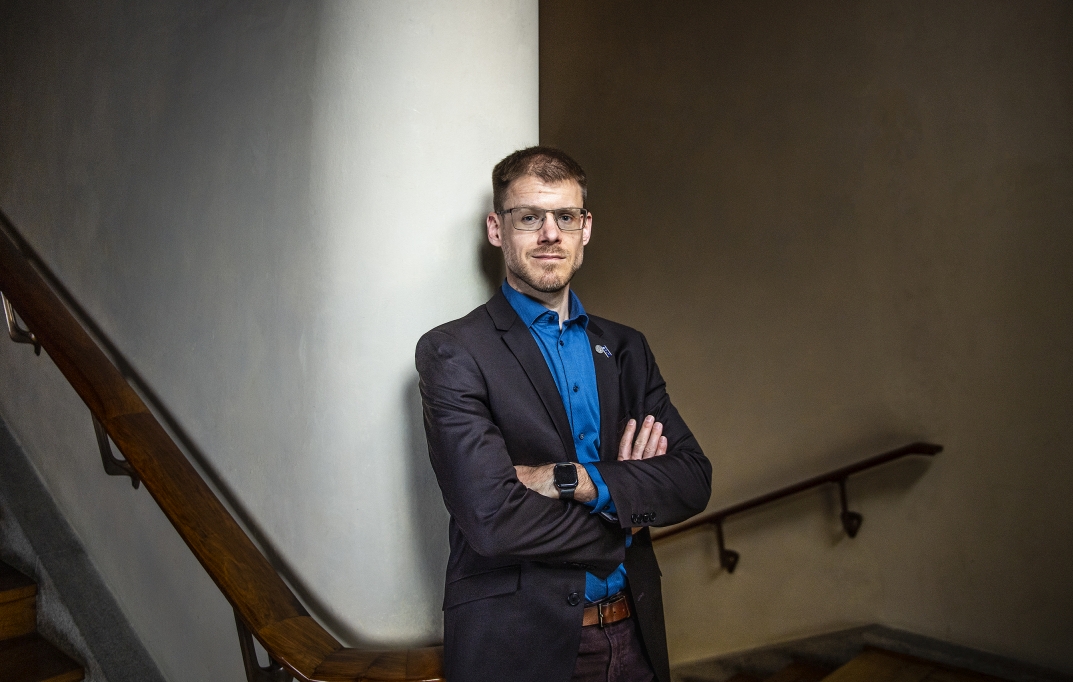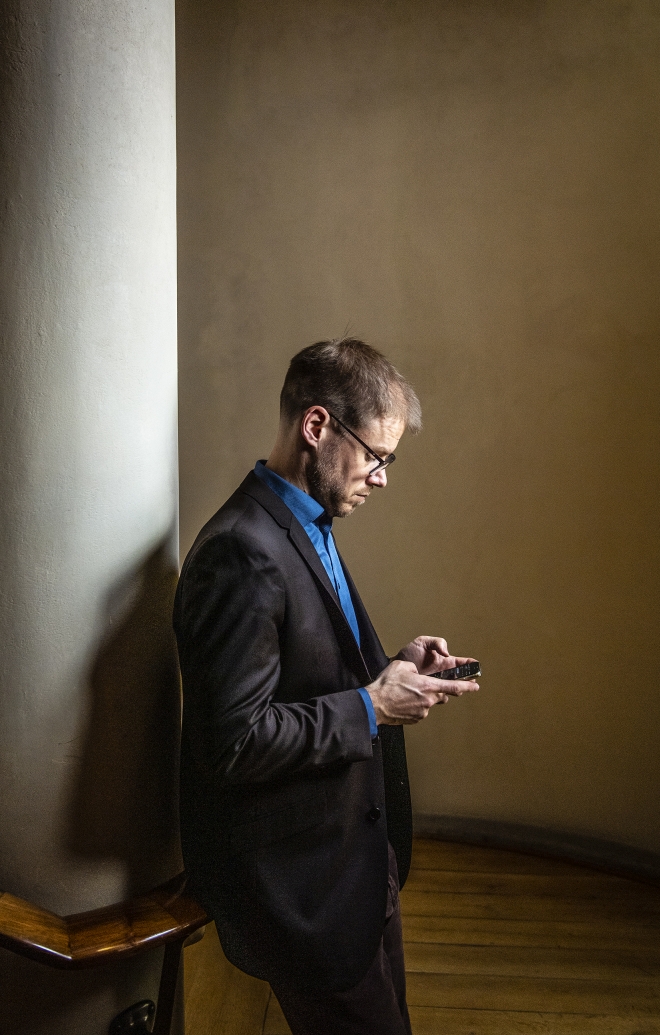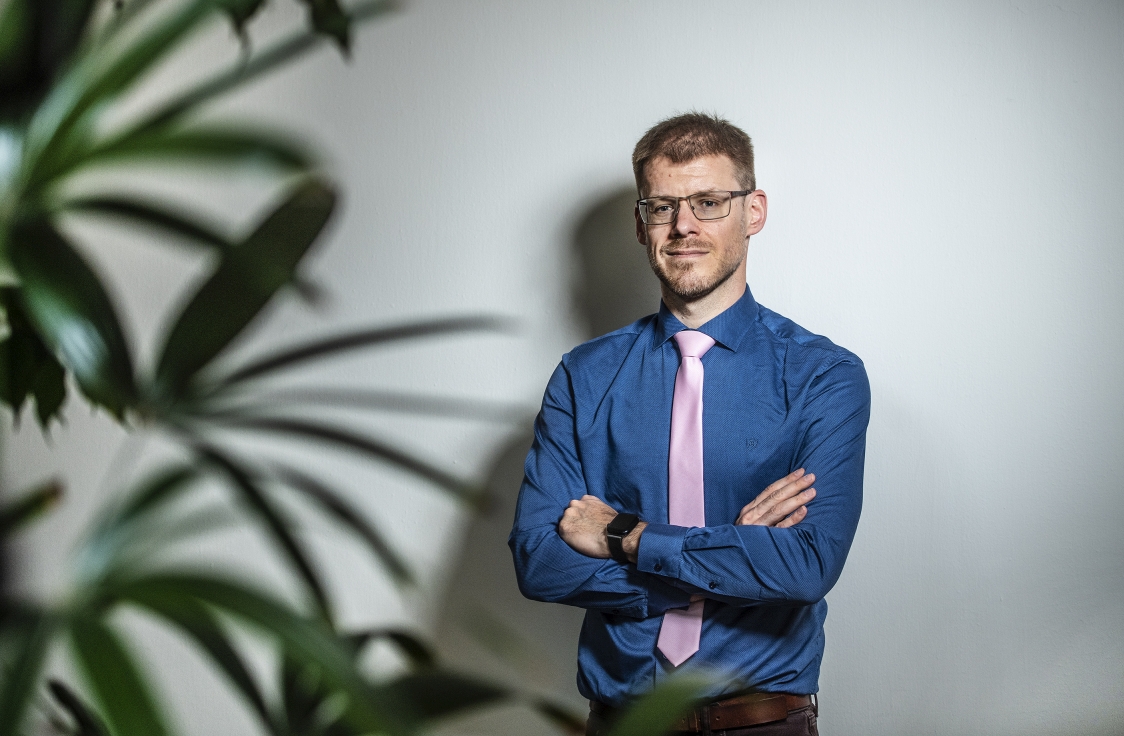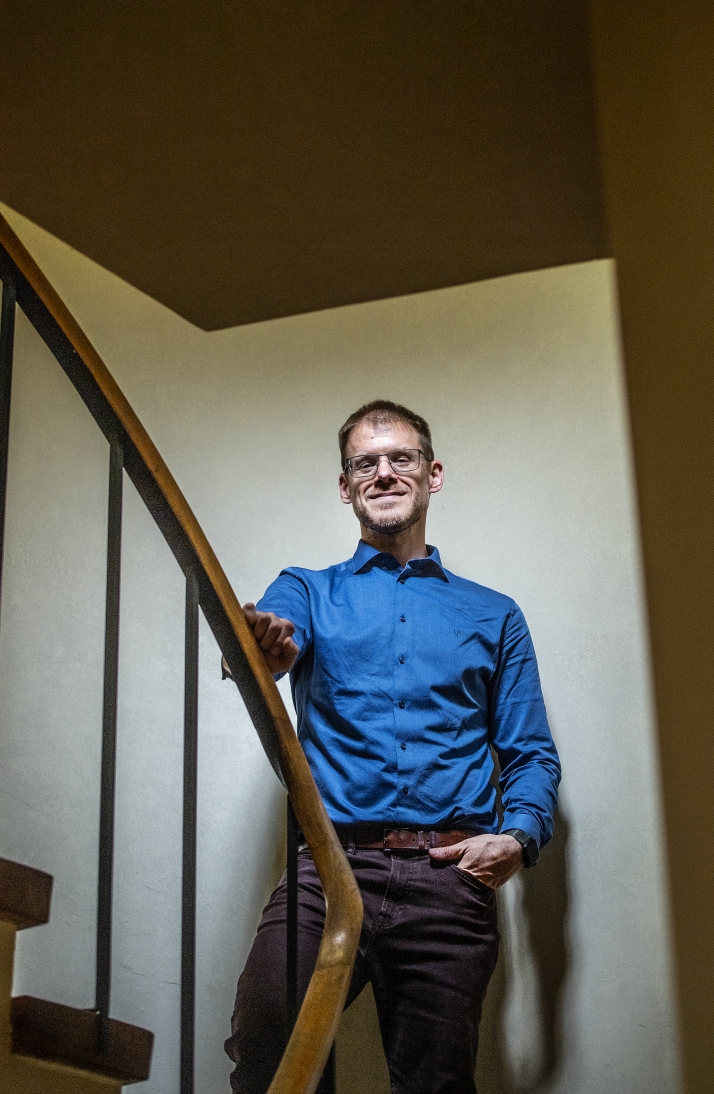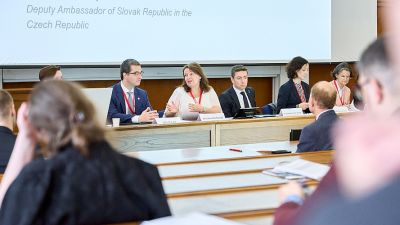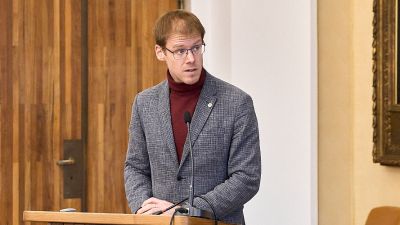On 1 March 2025, an amendment to the Higher Education Act, adjusting the conditions for doctoral studies, came into force. “The reform is a step in the right direction, even if it hasn’t been handled so well in terms of process,” says Ladislav Krištoufek, Vice-Rector for Research at Charles University.
What are the main changes brought by the Higher Education Act reform?
Funding is the main one: at the macro-scale, moving away from per capita distribution of funds to universities, and at the micro-scale, increasing the minimum income for students. This change was necessary, and it brings a different dynamic to the whole system. The model that worked until the end of 2023 had minimal economic or other incentives to operate effectively. Financially, as we say, the system functioned like a “tankless water heater”. Quality graduates were then more likely to be in spite of the system.
How many doctoral programmes does Charles University currently offer?
On the whole, we offer hundreds of PhD programmes. Some are quite small, some are accredited but may have no students. This change in funding, which finally brings economic responsibility into the system, will inevitably lead to a reduction, be it through cancelling programmes or by merging them.
Who will pay the guaranteed minimum figure for scholarships, and how?
Simply put, until 2023, the faculties reported the number of full-time PhD students in the standard period of study and received the sum for scholarships from the Ministry of Education on that basis. Since last year, a fixed amount is distributed according to yearly averages from 2018 to 2022. Universities then distribute these funds among their faculties according to a certain formula. And at CU, for 2024 and 2025, we have chosen a similar method as the Ministry, but we are using more recent data. From 2026 onwards, we will then distribute part of these funds via other qualitative indicators. This system creates a stronger incentive to be stricter during the admission process and to be more selective towards quality. The faculties will actually pay the students, unlike the previous system where these were effectively “paid for”.
But a stipend of 1.2 times the minimum wage is still not enough for a PhD student to live on their own in Prague and perhaps even support a family…
At first glance, this figure is not high, but it is a net income. Housing is, of course, a separate matter, but as a daily commuter living with my family in Kolín, I can only say that one makes many decisions in their life. Nevertheless, the faculties will have a variety of resources to choose from, in the case of Charles University this includes programmes such as Cooperatio, UNCE or Primus, but also other means such as faculty scholarship funds and external funding. So, from the position of the Rectorate, we are, in a way, untying the hands of faculties and providing them with support and methodical guidance. We also put a lot of pressure on the Ministry of Education to make such flexibility possible; this was, and remains, essential.
By what percentage do you estimate that admission numbers will decrease?
My expectation in aggregate is somewhere around minus thirty percent. In an extreme case, maybe up to half, but that will vary across different fields. But it should be emphasised that there is likely to be significant spillover between full-time and combined form students. With my hand on my heart: we know very well that a significant proportion of full-time students were effectively combined (i.e. part-time) students, only receiving a scholarship through the aforementioned “tankless heater”.
What is the current success rate of completing doctoral studies at CU?
The overall success rate is around fifty percent. More important for us is completion within the standard period, which means within four years, with an optional extra year. Here we reach much lower numbers, around fifteen to seventeen percent. I hope that with the changes in the system and additional support we are developing at CU, we will reach a state where we will be competing for quality PhD students with a higher chance of successfully completing their studies within the standard period.
Will the admission criteria for PhD applicants be stricter, then?
The goal is to choose only quality applicants who have an actual chance to complete their doctorate, bring new knowledge, increase their qualification, or maybe go abroad as a postdoc and then later return and further develop their field – or stay abroad as a stepping stone for further cooperation with the university, their alma mater. This flight to quality logic is often lost in discussions that boil down to there will be the same amount of money, but fewer students. This reform offers universities the means and motivation to act rationally – and make more choices. The practice of giving out money per capita is finally gone.
“I think PhD students should not reach a point where they only discover
what lies ahead in their fourth or fifth year of PhD study.
The PhD should be part of a medium-term plan.”
Does the reform address the issue of supervisors or their quality in any way?
Implicitly, via “budget constraints”. Only a supervisor who is able to find additional funding will be able to have a PhD student. A quality supervisor usually has a grant, sponsorship from an external body, is involved in an international network, or has a project that fits in with their research. By the way, the rules that I enforce as Vice-Rector for Research made it so that I myself do not fit into the “quota” of the faculty, or rather the institute. I therefore cannot accept new students this year. In fact, I have less time for science and research, and in turn, PhD students. My external grant is coming to an end and as Vice-Rector I am not actively involved in any internal arrangements. And that’s fine. The rules must apply to everyone.
You were personally involved in the preparation of the reform. In which particular ways?
In various working groups where we made comments on the law. For example, we pushed hard for the doctoral income to include the income of external entities such as the Czech Academy of Sciences, university hospitals or the Czech National Bank (CNB). We managed to introduce this into the law, which I consider to be very important. And the aforementioned flexibility to utilise various sources to cover doctoral income is absolutely crucial.
Are you satisfied with its result?
I am satisfied with the final shape of the bill. The procedural or implementation side of things is more complicated. Writing a bill is essentially simple, but implementing and enforcing it is a huge challenge. To say, “Pay a stipend or a side income” sounds good on paper, but it comes with implications. How to deal with current students? What types of scholarships can be used? How to deal with external income? How to share information? These are procedural matters; they are not, of course, to be dealt with in the bill, but they need to be thought about in the preparation process. Unfortunately, in many cases this has not happened at the legislator level… Politically, it is good to show that scholarships have been doubled, but there is little talk about the risks within the whole process. The ministry is to be commended for setting the allocated amount and for recognizing the need to get the system moving. Overall, the reform is an opportunity and a step in the right direction, but procedurally it has not been handled so well. I expect it will take two years for the system to “set in”.
Will the reform, namely the guaranteed higher income, also affect current students?
The Charles University has decided to increase the guaranteed doctoral income for current full-time students in the standard period of study to CZK 17,500 from the beginning of the academic year 2025/2026. From the academic year 2026/2027 onwards, we would like both new and current students to operate under the same rules. We want to give the faculties one more year of the effective date of the law so that they can adjust to the situation internally and make strategic decisions.
What should be the main motivation for students who want to get a PhD? Is it to pursue an academic career, or is the degree also useful outside of academia?
Academic institutions are not “inflatable”, making the global market unable to accommodate all graduates. It is important for degree programmes to cooperate more closely with the commercial sector and to prepare students for non-academic careers as well. There are also fields where a PhD is a standard career requirement outside academia: for example, in chemistry or biochemistry, medicine, pharmacy or in research departments of institutions such as the aforementioned CNB. In most cases, continuation in academia is expected, but the professional and non-academic part does – and must – play a larger role.
How exactly is Charles University planning to support so-called soft skills?
These are developed centrally within the Doctoral Study Hub and other formats. What does it involve? Specifically, academic writing, research ethics, the use of software and now also artificial intelligence tools. Given the heterogeneity and decentralisation of the university, it is hard to imagine a truly centralised doctoral school. We are taking the route of identifying the intersections of what every PhD student should know and what skills they should have, regardless of field or degree programme.
How important is supporting foreign applicants for doctoral studies at CU?
Personally, I don’t really differentiate between domestic and international students; they are simply students. Likewise, study programmes should be structured as international in their very definition. Openness and internationalisation are the only way to counteract the inbreeding [The phenomenon of universities employing their own graduates as academic staff – ed.] and entrenchment [A state in which certain schools of thought, theories, methods, or institutions become so established and entrenched in an academic environment that they are difficult to change or challenge – even as new insights or criticisms emerge – ed.] that the Czech, and hence our own, university environment suffers from. And the mentality of openness must be promoted already at the doctoral and postdoctoral career stage. In the European and global environment, rotation of PhD students and especially postdocs is standard career practice. This is one of the things that we are effectively building from the ground up. We have received support from Marie Skłodowska-Curie Actions COFUND, which is our Charleston program for international postdocs, we are also expanding our support for MSCA Postdoctoral Fellowships, and we are planning further development in the future.
The reform is said to help better harmonize students’ work, study and personal lives, and the amendment process also addressed a “babysitting fee”. What was the result?
There are things that create barriers for PhD students, in this case mainly female PhD students. For example, how to deal with maternity and parental leave for a full-time student who only has a stipend. Historically, she has not been eligible for parental support because she does not pay her social insurance. A similar situation exists with the counting of studies towards retirement. It was unfortunate that legislators tried to address this as part of the amendment to the Higher Education Act. It is not the responsibility of the Ministry of Education, but of the Ministry of Labour and Social Affairs. Some of this has been resolved in some way, but it is not directly part of the amendment to the Higher Education Act.
Now a personal question: what was your motivation to apply for a PhD?
When I was finishing my Master’s studies, I was deciding between a PhD and a corporate job. I had a job offer from a financial audit firm, and at the same time I was accepted for a PhD at the Institute of Economic Studies at the Faculty of Social Sciences at Charles University with support from the Centre of Doctoral Studies, which was a revolutionary thing back in 2009, where the Institute’s funding was largely distributed among four to six selected PhD students who were expected to do their PhD actually “full time”, with the rest of the funding going to all the PhD students purely on a performance basis. I compared the two options and decided to pursue the PhD. The financial support and the outlook were comparable to taking up a corporate job – that is, with the expectation of relevant performance, but I was quite prepared for that (smiles). For me, however, the PhD was mainly an intellectual challenge, which the corporate sector, with all due respect, was not. The PhD was really fun and fulfilling for me! But the fact is that the financial component played a role. Had I not been additionally supported beyond the scholarship, I would almost certainly have handled it differently. I was already making very economical decisions with an eye towards future life and family planning.
Do you have a message for students who are deciding whether to apply?
I am convinced that a PhD is a career decision already by the time a student finishes their Master’s degree. I think PhD students should not reach a point where they only discover what lies ahead in their fourth or fifth year of PhD study. The PhD should be part of a medium-term plan. It is really important to have a good supervisor and discuss the possibilities and prospects with them. As early as when you start your PhD, you need to realise that it is a career decision with all the opportunities but also other consequences. It may sound harsh, but it is the truth. Choose well!
| prof. PhDr. Ladislav Krištoufek, PhD |
| Graduated in economics from the Institute of Economic Studies, Faculty of Social Sciences at Charles University, where he now teaches econometrics, data analysis and data science. He also spent six months as a research fellow at Warwick Business School. At the age of 35, he became one of the youngest professors in the social sciences at Charles University. His current research interests are primarily in cryptoassets/cryptocurrencies, as well as a wide range of primarily financial and energy topics. According to various rankings, he is currently the most cited social science researcher working in the Czech Republic. He also has a decent collection of Magic: the Gathering cards. |


